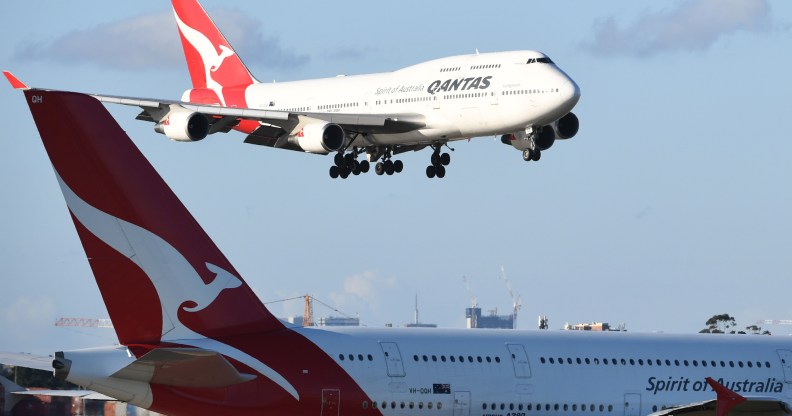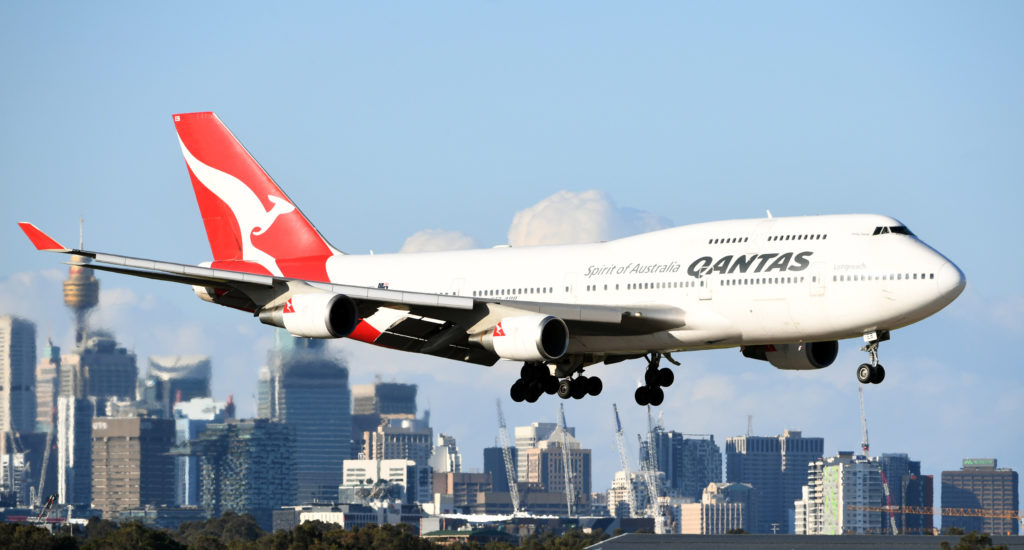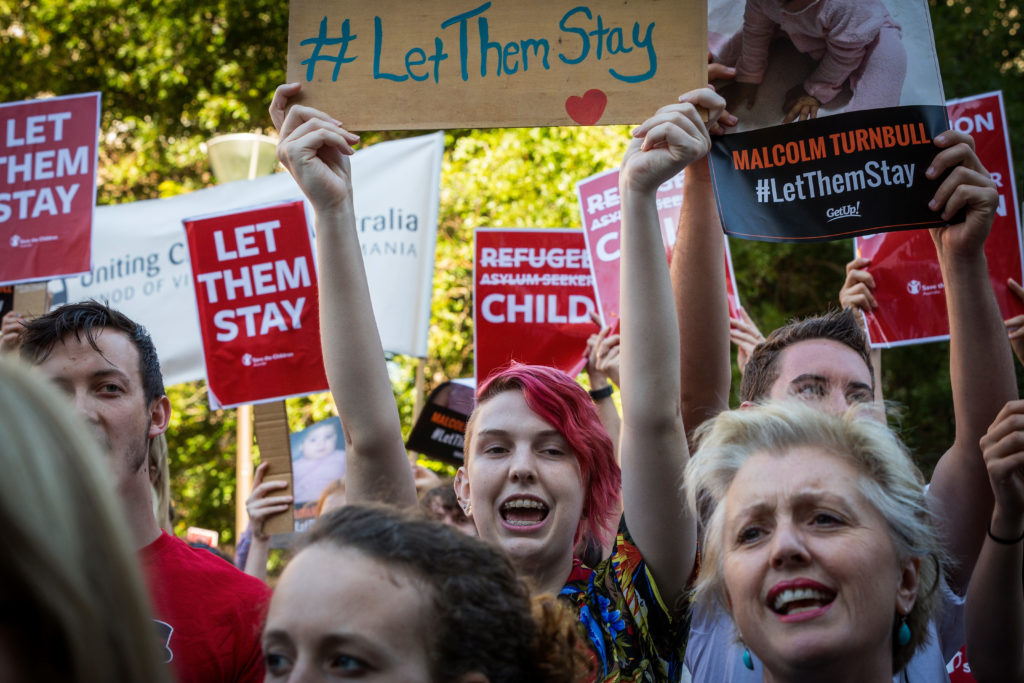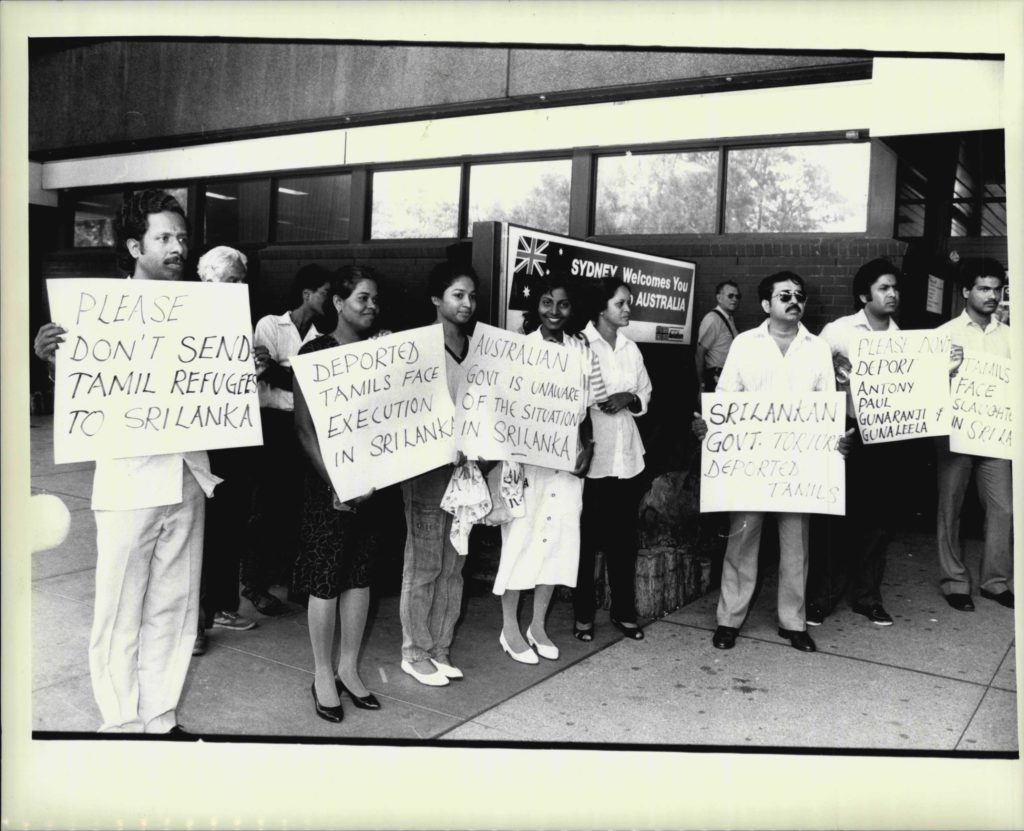Pressure building on Qantas to end LGBT deportations

Qantas is based in Australia. (James D. Morgan/Getty)
A group of influential LGBT-supportive Australians have signed an open letter urging Qantas to end forced deportations of LGBT+ asylum seekers.
The Department of Home Affairs uses Qantas, Australia’s largest airline, to transport asylum seekers between detention centres and for involuntary deportations, often to countries where it is dangerous to be LGBT+.
Qantas has refused to review their policy on this, despite the fact that the airline’s CEO, Alan Joyce, is gay.
Tamil rapper MIA, comedian and presenter Tom Ballard, Australian journalist Ben Law and film producer Charlotte Mars are among the 150 high-profile supporters backing the ‘Stop Deportations to Danger‘ campaign.
They are calling on Qantas to stand by “the spirit of Australia” and end their involvement in the government’s asylum seeker policy.
Joining a bunch of folks here calling on @Qantas to stand up for the #SpiritOfAustralia and #StopDeportationsToDanger. Deportations suck and destroy lives. Get out that business please. More here: https://t.co/2jjPIMErHv pic.twitter.com/RtA3WTIZ7O
— Tom Ballard (@TomCBallard) August 1, 2019
Championing LGBT+ rights while “complicit” in deportations
The letter reads: “Australia has a brutal and inhumane refugee and asylum seeker policy which destroys lives, including those of children. Numerous authorities have found that the system of refugee processing and detention falls foul of international law.
“Qantas has long championed the rights of the LGBTQIA+ community.
“As marginalised and oppressed groups, we are not discrete and separate. Our communities intersect and overlap. We draw on the history of our struggles to stand with migrants and refugees facing deportations to places of danger.
“It is grossly hypocritical that Qantas continues to be complicit in the execution of the Australian government’s policy.
“If Qantas truly cares about ‘standing up for what is right, standing up for a fair go and standing up for those who can’t’ we urge the airline to stand in solidarity with all who are seeking safety and cease forced deportations.”

LGBT+ activists are protesting Qantas’ involvement in forced deportations (Getty Images)
Responsibility to protect human rights
Last year Qantas came under heavy criticism for deporting dozens of Tamil asylum seekers back to Sri Lanka, where they faced torture.
Rights groups have directly accused the airline of being “part of human rights abuses.”
The Australian Centre for Corporate Responsibility (ACCR) says companies like Qantas have a duty to respect human rights, which means “taking measures to avoid causing or contributing to adverse human rights impacts.”

2016: Thousands of Australians protested the High Court’s decision regarding 267 refugees facing deportation (Chris Hopkins/Getty)
In a public statement on deportation, the ACCR said: “To discharge their responsibility, airlines should not participate in deportations where there is evidence that the fundamental human rights to an adequate legal process have been denied, as well as where there is a real risk of serious, irreparable harm to an individual.”
In spite of this, Qantas shareholders have voted “emphatically” to uphold the airline’s role in forced deportations.
Government claims changes to system could leave it open to abuse
The Australian government has long faced calls to address its “toxic” deportation policy. But in 2018 it refused to guarantee that gay asylum seekers would not be sent back to countries where they face the death penalty.

1988: Placard-carrying Tamils at Sydney airport making a last minute call upon the Australian government to reverse its decision to deport four Tamil nationals back to Sri Lanka. (Victor Colin Sumner/Getty)
The government claims that changes to make the system less hostile towards LGBT+ people would lead to a risk of abuse.
A spokesperson for the Department of Home Affairs said: “Offering blanket protection to a group of individuals has the potential to encourage large numbers of un-meritorious applications from those who would seek to abuse the protection program to extend their stay in Australia.
“This would risk reducing public confidence in Australia’s humanitarian program and redirect resources from those applicants truly in need of protection.”

